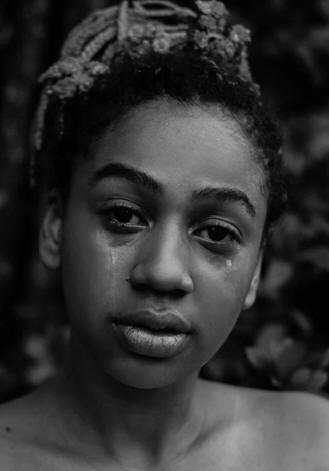Gender-Based Violence and the
Impact on Family Life
By
Barrington H. Brennen, August 21, 2023,
A Women’s Affairs Ministerial Meeting Side Event
Hosted by the Office of the Spouse to the Prime
Minister
This ten minutes speech was presented by
Barrington Brennen at the meeting mentioned
above.
He presented along with seven other expert
panelists.
PDF Format
Read in your own language

|
Click here
to listen
to this article |
|

|
Gender-based violence
(GBV), which impairs or
invalidates the enjoyment by women of their
human rights and freedoms under international
law or under human rights conventions, is still
crippling the healthy development of many
families in The Bahamas and the Caribbean.
Here is a quote from United Nations Women:
“Gender-based violence, already a global crisis
before the pandemic, has intensified since the
outbreak of COVID-19. Lockdowns and other
mobility restrictions have left many women
trapped with their abusers, isolated from social
contact and support networks.” In other words,
GBV has gotten worse during the past two years.
Although life seems back to normal since the
pandemic started, gender-based violence is not
abating.
One of the beliefs and practices that is at the
heart of why too many of our women are still
being wounded both emotionally and physically,
is the patriarchal ideology being taught by far
too many religious leaders. What is
patriarchy? Here are simple definitions. It is
the belief and practice that a male has
authority and power over a female. It also
means that a female has less value and purpose
than a man. The reason for the female’s
existence is to serve and obey a male authority
figure.
It is the patriarchal system that has caused
pain and misery to millions of women since Bible
times to now. Is it then fair to say that the
church is obstructing the doorway to freedom and
emotional and physical safety of many women,
girls, and boys?
Here is a quotation by one of my favorite
authors, Dr. John Bristo about Aristotle in his
book, “What the Bible says about love Marriage
and Family”. It helps us to understand where
this all started.
“Aristotle explained that this difference
between husband and wife is like that of man’s
soul and his body. The man is to his wife as a
soul is to the physical body, meant to command
and guide arms and legs with wisdom and
intelligence. (Aristotle used this same analogy
to defend the practice of slavery and define the
relationship of master and slave.) Just as one’s
body, with its impulses and desires, should not
rule his soul, so a wife should not rule her
husband. And, he added, as a stern warning, the
“equality of the two or rule of the inferior is
always hurtful.”
master and slave.) Just as one’s
body, with its impulses and desires, should not
rule his soul, so a wife should not rule her
husband. And, he added, as a stern warning, the
“equality of the two or rule of the inferior is
always hurtful.”
This belief has saturated the minds and heart of
many in our land and it shows by the way we
treat our women, girls, and even boys.
Everyone in the family is impacted by
gender-based violence. Let’s look at the
children. Children who live in a home where a
woman is abused or is a victim of physical or
emotional violence may think that it is normal
and justified. We also know that experiencing
or observing violence can impact the development
of a child. For example:
Between the ages of 3 to 6 there can be:
-
Development Delay, Especially in Language
Development. The child may be afraid to speak,
afraid of becoming the target of anger. This is
due in part to not being spoken to by adults or
experiencing meaningful discussion with adults.
-
Low Frustration Tolerance. The child cries
easily and often. Her world is so chaotic she
cannot handle ordinary stress. He usually has
not witnessed appropriate ways of dealing with
stress.
-
Acting Out Aggressively Toward Peers and
Adults. She models the aggressive behavior
observed in the home.
Between the ages of 7 to 11 there can be:
-
Scholastic Delay or Poor School Performance. The
child finds studying and learning difficult when
he cannot keep from worrying about what happened
at home last night or who is going to get hurt,
or maybe killed later tonight.
-
Behavior Problems with Peers and Adults. Because
of the lack of observable appropriate
interpersonal relationships, the child has not
learned appropriate ways to interact with
others. The child may be crying out for help,
the only way he can still keep the "family
secret."
-
Aggressive Acting Out Becomes More Severe and
Purposeful. The child models the violent
behavior witnessed in the home.
Between the ages of 12 to 17 there can be:
-
Depression. There is a loss of hope and joy. The
adolescent is full of sadness.
-
Signs of Physical Injuries, Maiming, Crippling,
Scarring. Too often abuse leaves long-term or
permanent scars on the adolescent.
-
Aggressive/Delinquency/Running Away. The
adolescent realizes no one will take care of his
needs, except himself. Adolescents will use the
only coping skills they have learned: violence
and self-destruction.
-
Poor School Adjustment. The adolescent is
academically and socially unable to perform.
-
Early Sexual Activity/Marriage. It is common for
adolescents who experience or witness abuse to
engage in early sex or marriage as a means of
escape or act out.
What about marriage itself and home management.
As implied in my quote about Aristotle, first,
there is still a belief that there is a
hierarchy in marriage. The husband is the head
of the wife. The husband is in charge of the
home. The husband has the last say. These
beliefs and practices and others like them have
caused great damage to the health of the family
in many homes. For example, here are a few
scenarios:
-
A husband who makes it known who the boss is. He
sits, as all lions do, waiting to be served.
When he roars, everyone must move. His children
respect him as head, but they are really afraid
of him. His wife nervously honors his wishes so
as not to cause him to become angry. Other words
that can aptly describe this type of head are
"domineering" and "military commander" head.
This husband sets the stage for his sons to be
domineering and his daughters to be abused.
-
A husband is making $70,000 annually and his
wife is making $110,000. Both incomes and very
adequate to run a lovely modest middle-come home
with all the amenities they want. But his ego
and belief system are driving him to get another
job to make more than his wife so he can feel in
charge. This power struggle causes friction in
the relationship
-
A wife makes $120,000 annually and her husband
makes $45,000. She is raised to believe that it
is her husband’s duty to financially provide all
the needs of the home, therefore she feels
justified in spending her money as she wishes
since the husband is to be the provider and be
in charge. They are struggling financially and
have regular arguments about money.
-
A father demands that his twelve-year-old
daughter washes the dishes. He tells her that
as long as she is in the house it is her duty to
wash the dishes because she is a girl. It is
not his duty to wash dishes because he is the
man of the house. Research tells us that happier
couples and families are those where roles are
determined by talent and not gender.
-
A mother of one daughter and four sons has
trained the daughter to be the servant to her
brothers. Her duties include washing their
clothes and taking their plates from the table
after they have completed a meal. The sons will
grow up to demean women and the daughter can be
a victim of abuse.
-
A 29-year-old young woman has been
engaged to her boyfriend for 8 years.
Why is she still in the relationship?
Because she has been trained that he
must take the lead (the patriarchal
system again), even when deciding to get
married. She hangs around waiting,
getting burnt out and frustrated.
Sometimes this frustration includes
pregnancy and being overly dependent and
then trapped with no place to turn.
Finally, perhaps two of the most painful topics
under gender-based violence is that of rape and
abortion and their impact on relationships and
the family. They are ripping families apart,
not just because of the acts themselves, but
because the
 victims have little or no voice in
the court of law. It is so sad, that a
seemingly progressive nation is taking so long
to make laws that a spouse can be raped in
marriage by his or her spouse. The longer we
take to pass this law the more women are
re-victimized. Our political leaders are
complicit in violating the human rights of
women because of political
expediency.
victims have little or no voice in
the court of law. It is so sad, that a
seemingly progressive nation is taking so long
to make laws that a spouse can be raped in
marriage by his or her spouse. The longer we
take to pass this law the more women are
re-victimized. Our political leaders are
complicit in violating the human rights of
women because of political
expediency.
Also, while we all might believe that all life
is sacred, whose life is more sacred than that
of a little child who is raped and becomes
pregnant? She is at a higher risk of dying
during birth, developing severe psychological
disorders, and becoming a dysfunctional teen and
depressed wife. If the pregnancy is due to
incest there are even more complex issues. Here
is a quote from the Complex Post Traumatic
Stress Disorder Foundation article on incest:
“Children of incest are in danger of premature
birth and being underweight and undersized.
Viable babies of incestuous couples are also
likely to have physical deformities.”
A myriad of challenges exist in dealing with
these topics. Here are just three of them:
-
In some families there is a lack of social
intelligence and emotional sensitivity which
makes the family members vulnerable to accepting
abnormal behavior as normal. When this is
combined with a poor view of the value of
women/females the pain is greater.
-
The victim of rape is often blamed, even the
little girls. “She was too free.” “She
turned him on.” Hence, she may develop low
self-esteem, be prone to depression, and if she
has children, she might become abusive to them.
-
The victim of rape, especially if it is a minor,
is not believed and is instead brutally punished
for making such accusations. A nine-year-old
girl was brutally beaten for one hour by her
grandmother after telling her mother that she
was raped by her boyfriend. Because of the
attitude of the guardians, the little victim is
afraid to tell anyone.
Without proper treatment, these victims grow up
as wounded individuals and may seek refuge in
relationships that also lead to more abuse. And
the cycle of gender-based violence continues and
the family heads towards the precipice of severe
dysfunction.
Ladies and gentlemen, let’s unite, and stand up
to end gender-based violence. Stop believing the
lie that men are de-facto “heads of the home and
the church” because they are better suited for
leadership. We must speak against gender-based
violence and remember that "Gender equality
means that under God and the law both male and
female have equal voice, vote, authority,
access, opportunity and protection." Also
remember when we reduce gender-based violence,
we are also protecting and developing healthier
families.
Thank you for listening.
Email
question@soencouragement.org
Call or Text: 1-242 327 1980 /
1-242 477 4002 (WhatsApp also)
www.soencouragement.org
www.soencouragement.org/counseling